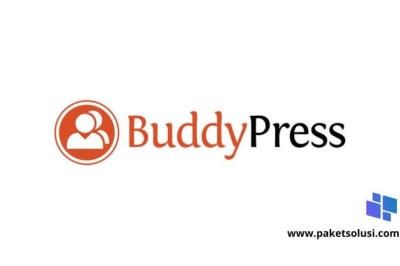views
Google AdWords Quality Score
In the realm of Google AdWords, Quality Score plays a critical role in determining the success and cost-effectiveness of your campaigns. It's a metric used by Google to gauge the quality and relevance of your ads, keywords, and landing pages. Quality Score is rated on a scale from 1 to 10, with 10 being the highest. A higher Quality Score leads to lower costs and better ad positioning, while a lower score can increase your costs and make it harder for your ads to appear.
Why Is Quality Score Important?
Quality Score impacts three major components of your Google AdWords campaigns:
-
Cost-Per-Click (CPC)
- Higher Quality Scores mean lower CPCs. Since Google rewards advertisers with high-quality ads, you can pay less per click while achieving the same or better ad placement.
-
Ad Position
- Ads with a higher Quality Score tend to rank higher on the search results page. This can significantly improve your visibility and click-through rates (CTR).
-
Ad Rank
- Quality Score is a key factor in determining your Ad Rank, which decides the order in which your ads appear in the search results.
Factors That Influence Quality Score
Google calculates Quality Score based on several components, including:
-
Click-Through Rate (CTR)
- CTR is the most important factor, as it indicates how relevant your ads are to users. A higher CTR suggests that your ads match user intent, leading to a higher Quality Score.
-
Ad Relevance
- Google looks at how well your ad matches the keyword or search query. The closer the match, the higher the ad relevance, which positively impacts Quality Score.
-
Landing Page Experience
- The landing page's relevance and usability are also taken into account. The content on the landing page should be aligned with the ad's message and provide a seamless user experience.
-
Historical Ad Performance
- Your account's overall history and past performance with Google AdWords can influence Quality Score. Consistently high-performing campaigns can boost your score.
How to Improve Your Google AdWords Quality Score
To maximize your Quality Score and reap the benefits of lower costs and higher ad positions, consider the following strategies:
1. Optimize Click-Through Rate (CTR)
Since CTR is a crucial factor in determining Quality Score, it’s essential to make your ads as engaging and relevant as possible.
- Use Strong Call-to-Action (CTA): Encourage users to click with compelling CTAs like "Get Started," "Learn More," or "Shop Now." Make it clear what users should do next.
- Incorporate Target Keywords in Ad Copy: Ensure that your ads include the keywords you’re targeting to make them more relevant to the search queries.
- Utilize Ad Extensions: Add site links, callouts, and structured snippets to make your ad more appealing and informative.
2. Increase Ad Relevance
Improving ad relevance can significantly boost your Quality Score. This means making sure your ad copy closely aligns with the searcher's intent.
- Create Highly Targeted Ad Groups: Each ad group should focus on a small set of closely related keywords. This will make it easier to write highly relevant ad copy for each group.
- Use Dynamic Keyword Insertion (DKI): This feature automatically updates your ad text to include the keywords users are searching for, making your ads more relevant.
- Refine Your Keyword Match Types: Use phrase match or exact match to ensure that your ads appear only for relevant searches.
3. Enhance Landing Page Experience
Google considers the quality and relevance of your landing pages in the Quality Score calculation. To provide a better landing page experience:
- Ensure Content Relevance: The landing page content should match the message in your ad. If your ad promises a discount on specific products, the landing page should highlight those products and the discount.
- Improve Page Load Speed: A fast-loading landing page improves user experience and can boost your Quality Score. Use tools like Google PageSpeed Insights to identify and fix speed issues.
- Make the Page Mobile-Friendly: Since a significant portion of traffic comes from mobile devices, ensure your landing page is responsive and provides a smooth experience across all devices.
4. Focus on Account Structure and Organization
The way your Google AdWords account is structured can impact your Quality Score.
- Organize Keywords into Relevant Ad Groups: Group similar keywords together in tightly themed ad groups. This will help you write more relevant ads and improve ad relevance.
- Use Single Keyword Ad Groups (SKAGs): Consider creating ad groups with just one keyword to maximize ad relevance and Quality Score.
5. Leverage Negative Keywords
Adding negative keywords to your campaigns helps to filter out irrelevant traffic. By preventing your ads from appearing for unrelated searches, you can improve CTR and Quality Score.
- Regularly Update Negative Keywords List: Review search term reports to find irrelevant keywords that trigger your ads and add them to your negative keywords list.
- Use Negative Keywords Strategically: Ensure that you're not inadvertently blocking valuable search queries that could drive conversions.
6. Test and Optimize Ad Copy
A/B testing ad copy can help you identify which variations perform better. Consistently refining your ad copy based on performance can improve CTR and Quality Score.
- Experiment with Different Headlines and Descriptions: Test various combinations to see which ad copy resonates most with your audience.
- Incorporate Emotional Triggers in Your Ads: Using words that evoke emotions like "exclusive," "limited-time offer," or "free" can attract more clicks.
7. Monitor and Adjust Bids
Adjusting bids based on keyword performance and campaign goals can indirectly affect Quality Score.
- Bid Higher on High-Quality Keywords: If some keywords have a higher Quality Score and conversion rate, consider increasing your bid to maximize exposure.
- Lower Bids on Low-Quality Keywords: For keywords with a low Quality Score, try lowering the bids or refining the ad copy to increase relevance.
8. Utilize Responsive Search Ads
Responsive search ads automatically test different combinations of headlines and descriptions to find the most effective ad version for each search query.
- Provide Multiple Headlines and Descriptions: Add as many relevant headlines and descriptions as possible to let Google test various combinations.
- Use Keywords in Headlines: Include keywords in several headline variations to increase relevance and improve Quality Score.
Frequently Asked Questions (FAQ) About Google AdWords Quality Score
1. What is a good Quality Score in Google AdWords?
A Quality Score of 7 or above is generally considered good. Scores of 8, 9, or 10 indicate highly relevant ads, while scores below 6 suggest areas for improvement.
2. How often does Google update Quality Score?
Quality Score is updated in real-time based on your campaign's performance, but the visible score in your AdWords account may not reflect every minor update.
3. Does Quality Score impact ad delivery?
Yes, a higher Quality Score can improve ad delivery by boosting Ad Rank, which can lead to better ad placement and lower CPC.
4. Can Quality Score affect conversions?
Indirectly, yes. A higher Quality Score can lead to lower costs, better ad positions, and higher CTRs, which may increase conversion rates.
5. How do historical performance and CTR influence Quality Score?
Google considers the historical CTR of your keywords and ads, along with the performance of your account as a whole, when calculating Quality Score.
6. What are negative keywords, and how do they affect Quality Score?
Negative keywords prevent your ads from appearing for irrelevant searches. By filtering out unrelated traffic, negative keywords can help improve CTR and Quality Score.
7. Why is landing page relevance important for Quality Score?
A landing page that closely matches the ad's message and keywords will provide a better user experience, positively influencing Quality Score.
8. How does ad relevance differ from Quality Score?
Ad relevance is one of the components that make up Quality Score. It measures how closely your ad matches the keywords and the intent behind the search.
9. What tools can help improve Google AdWords Quality Score?
Tools like Google Keyword Planner, Google Analytics, and third-party PPC tools can assist in optimizing your campaigns and improving Quality Score.
10. Does Quality Score affect display ads?
Yes, Quality Score also applies to display ads, but the factors considered are slightly different, focusing more on the landing page quality and ad format relevance.
By applying these strategies, you can enhance your Google AdWords Quality Score, resulting in better ad positioning, lower costs, and more successful campaigns. Continual monitoring and optimization are key to maintaining a high-quality score over time.
Read more also: PPC Advertising How to make your business Click





















Comments
0 comment